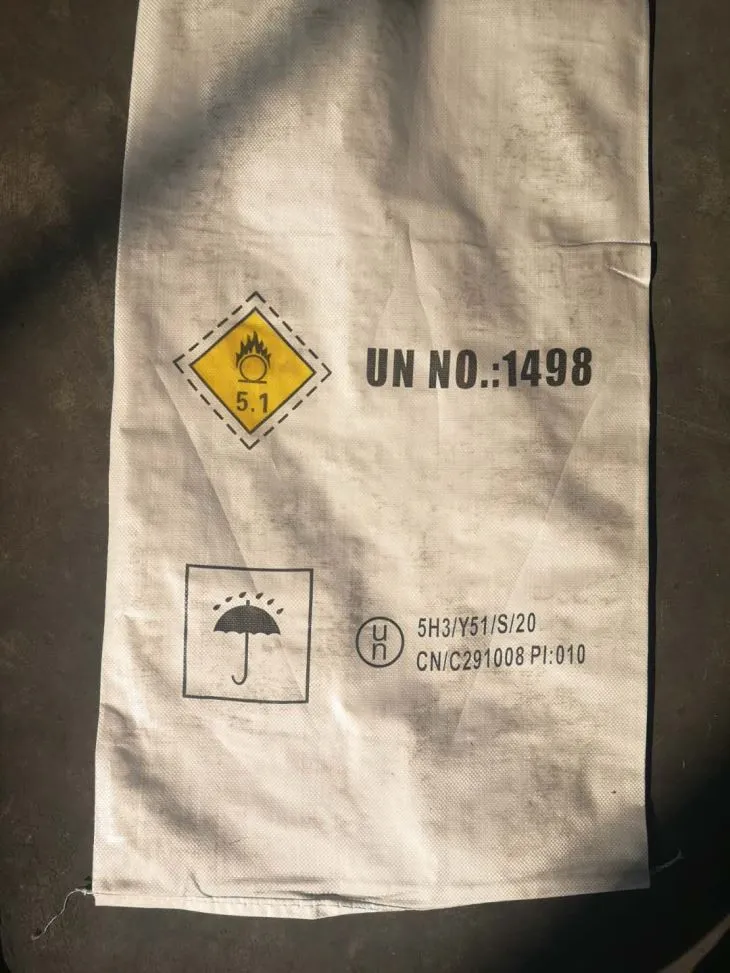



industrial use of sodium hydroxide
The Industrial Use of Sodium Hydroxide
Sodium hydroxide, commonly referred to as caustic soda or lye, is a highly versatile and essential chemical in various industrial processes. With the chemical formula NaOH, this strong alkaline substance is known for its corrosive properties and is widely utilized in a myriad of applications. Its significance in the industrial sector cannot be overstated, as it plays a vital role in the manufacture of countless products ranging from food to textiles.
Production and Properties
Sodium hydroxide is typically produced through the electrolysis of saltwater in a process known as the chloralkali process. This method simultaneously produces chlorine gas and hydrogen gas, as well as sodium hydroxide. The resulting solution can be concentrated and solidified for various uses. Sodium hydroxide is highly soluble in water, and the resulting solution is exothermic, releasing heat when dissolved. Its strong alkaline nature makes it capable of neutralizing acids, making it valuable in chemical reactions and manufacturing processes.
Applications in Industry
One of the most significant applications of sodium hydroxide is in chemical manufacturing. It is used to produce various chemicals, including sodium hypochlorite (bleach), sodium carbonate (soda ash), and various organic and inorganic compounds. The high pH of sodium hydroxide is crucial in many chemical reactions, facilitating the production of by-products that are essential in numerous applications.
2. Pulp and Paper Industry
In the pulp and paper industry, sodium hydroxide is employed in the chemical pulping process to break down lignin, the natural binder that holds cellulose fibers together in wood. The application of caustic soda helps to produce high-quality pulp, which is then converted into paper products. The efficiency of sodium hydroxide in this process makes it an indispensable component in the production of sustainable and recyclable paper goods.
3. Textiles and Dyeing
Sodium hydroxide plays a critical role in the textile industry, particularly in the processing of cotton. It is used in the mercerization process, which enhances the dye uptake of cotton fibers, making them more lustrous and durable. The alkaline solution also serves to remove impurities and prepares the fabric for dyeing, ensuring vibrant colors and improved quality of the final product.
industrial use of sodium hydroxide

4. Food Industry
In the food industry, sodium hydroxide is utilized in several processing applications. It is used in the production of certain food additives, such as sodium bicarbonate (baking soda), and plays a role in the preparation of olives and pretzels, helping to remove bitterness and enhance texture. The controlled use of caustic soda in food processing is essential for maintaining safety and quality standards.
5. Water Treatment
Sodium hydroxide is also significant in water treatment processes. It is used to raise the pH of acidic water, neutralizing its acidic properties, thus preventing corrosion of pipes and equipment. Furthermore, it aids in the precipitation of heavy metals and other contaminants, enhancing the overall quality of drinking water and wastewater treatment.
6. Soap and Detergent Production
Another vital application of sodium hydroxide is in the production of soaps and detergents. It reacts with fats and oils in a process called saponification, resulting in soap and glycerin. The versatility of sodium hydroxide allows for the formulation of a wide range of cleaning products, which are integral to both household and industrial cleaning applications.
Safety and Environmental Considerations
While sodium hydroxide has numerous industrial applications, it is important to handle it with care. Due to its corrosive nature, it can cause severe burns if it comes into contact with skin or is inhaled. Therefore, strict safety protocols must be adhered to in workplaces where sodium hydroxide is used. Moreover, environmental considerations come into play, as improper disposal can lead to harmful effects on aquatic ecosystems. Industries must implement responsible waste management practices to mitigate these risks.
Conclusion
In conclusion, sodium hydroxide is an integral component in various industrial processes, contributing to the production of numerous everyday products. Its versatility in chemical manufacturing, pulp and paper production, textile treatment, food processing, water treatment, and cleaning product formulation underscores its significance in the industrial landscape. Despite its corrosive properties, when handled with care, sodium hydroxide remains a reliable and essential chemical in modern industry, driving innovation and efficiency across multiple sectors.
-
Why Sodium Persulfate Is Everywhere NowNewsJul.07,2025
-
Why Polyacrylamide Is in High DemandNewsJul.07,2025
-
Understanding Paint Chemicals and Their ApplicationsNewsJul.07,2025
-
Smart Use Of Mining ChemicalsNewsJul.07,2025
-
Practical Uses of Potassium MonopersulfateNewsJul.07,2025
-
Agrochemicals In Real FarmingNewsJul.07,2025
-
Sodium Chlorite Hot UsesNewsJul.01,2025










